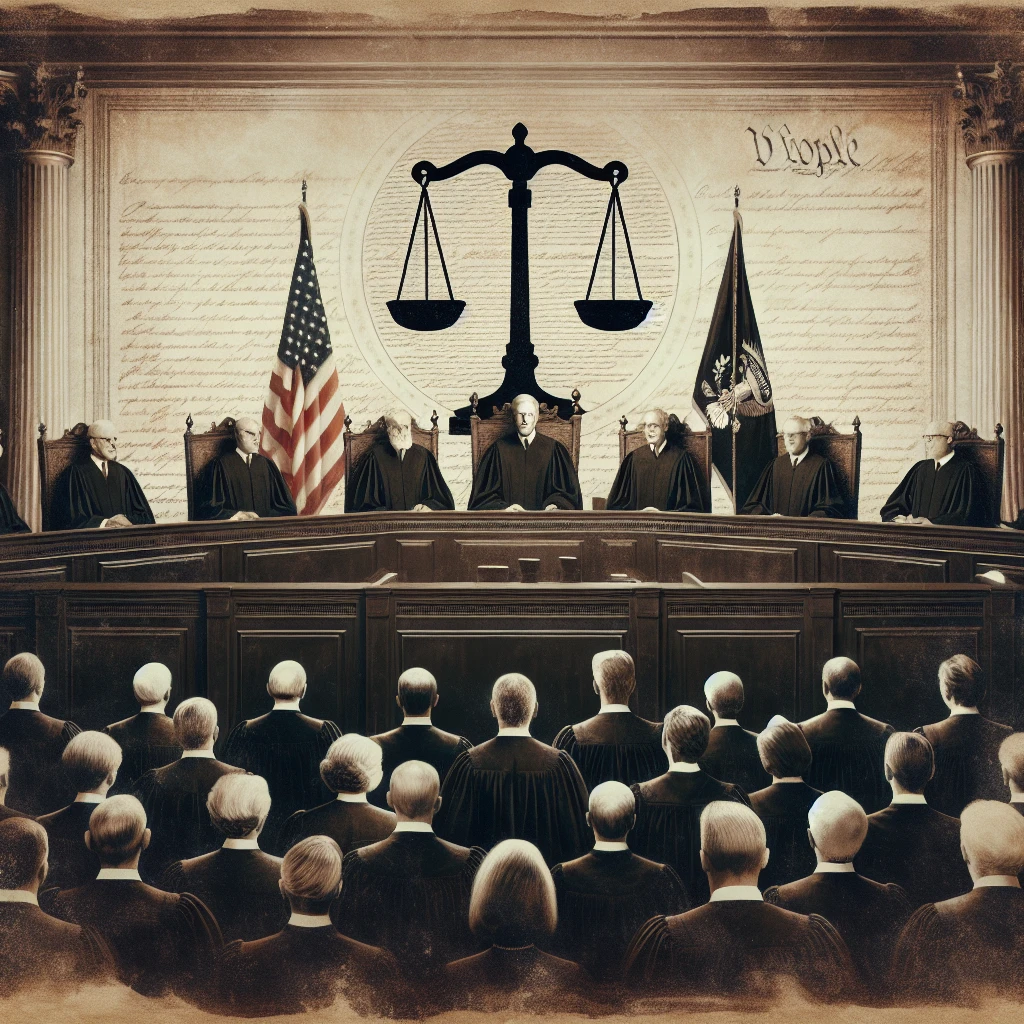
Supreme Court Likely to Uphold Trump's 2024 Ballot Eligibility
The Supreme Court appears likely to reject attempts to remove former President Donald Trump from the 2024 ballot, with conservative and liberal justices seemingly in agreement. A ruling in favor of Trump would put an end to efforts in Colorado, Maine, and other states to prevent his name from appearing on the ballot. The main concern for the justices is whether Congress must act before states can invoke a constitutional provision that prevents former officeholders who engaged in insurrection from holding office again.
Politics
Supreme Court Poised to Reject Attempts to Remove Trump from 2024 Ballot
By Jill Lorentz
February 8, 2024

The Supreme Court appears to be leaning towards rejecting attempts to remove former President Donald Trump from the 2024 ballot, according to a recent Associated Press article. The case, which puts the justices at the center of a presidential election, involves efforts in Colorado and Maine to prevent Trump's name from appearing on the ballot.
During arguments on Thursday, both conservative and liberal justices expressed skepticism about disqualifying Trump from running for president again. Their main concern was whether Congress must act before states can invoke Section 3 of the 14th amendment, which prevents former officeholders who "engaged in insurrection" from holding office again. There were also questions about whether this provision applies to the president.
In Colorado's Supreme Court ruling, it was decided that Section 3 could be applied to Trump based on his role in inciting the Capitol attack on January 6th, 2021. However, during oral arguments at the Supreme Court level, there seemed to be more support for congressional action rather than state-level decisions.
Justice Elena Kagan questioned why a single state should decide who gets to be president and suggested that congressional action might be necessary. Eight out of nine justices appeared open to some of Jonathan Mitchell's (Trump's lawyer) arguments against applying Section 3 to disqualify Trump.
Despite concerns raised by Jason Murray (representing voters suing against Trump), little time was spent discussing whether or not Trump actually engaged in insurrection following his loss in the 2020 election. Instead, most attention focused on procedural issues surrounding congressional action and potential appeals processes.
While Chief Justice John Roberts worried that ruling against Trump would lead other candidates' disqualification efforts down a slippery slope with potentially successful outcomes; others argued that if Congress has not yet acted upon this issue then it is premature for states like Colorado or Maine (which already have laws allowing them) trying themselves without waiting first--especially given how difficult such cases tend are historically due largely because they require proving intent beyond a reasonable doubt.
Trump's lawyers argue that Section 3 cannot be used to keep him off the ballot for several reasons. They claim that the Capitol attack was not an insurrection and even if it were, Trump did not directly participate. They also argue that the wording of the amendment excludes presidential candidates from its provisions and contend that Congress must pass legislation to reinvigorate Section 3.
On the other hand, lawyers representing Republican and independent voters who are suing to remove Trump's name from the Colorado ballot argue that there is ample evidence of his involvement in inciting an insurrection on January 6th. They believe it would be absurd to apply Section 3 to everything but the presidency or exempt Trump based on technicalities. They maintain that no enabling legislation is required for this provision.
The Supreme Court justices could issue a ruling quickly, possibly by Super Tuesday on March 5th when many states hold their primaries. If they uphold Colorado's decision, it would have significant implications for Trump's campaign as he seeks reelection in 2024.
This case highlights how polarized American politics has become since Trump took office in 2017. It also underscores the power of interpretation within legal frameworks like constitutional amendments--especially ones related specifically towards preventing individuals who engaged with rebellious activities against government institutions (such as those seen during last year’s riot) from holding public office again.
LATEST ARTICLES IN Politics
To Bolster Nigeria's Health Sector, USAID, DFC & FCMB Collaborate.
Johnson's Voting Intuition Contradicts Data.
Child Safety in Cars: Urgent Legal Measures Needed.
Fica Regulations Update Impacts High-Value Goods Dealers.
Join Our Newsletter
Popular Articles
-

Mar 13, 2024
Anyone But You - A Romantic Comedy Surprise of 2023 -

Feb 01, 2024
AI Company About to Revolutionize the Medical Space? -

Mar 20, 2024
COVID-19 Survivors at Risk for Autoimmune Diseases -

Jan 27, 2024
Get Rich in a Year with These 3 Coins!




